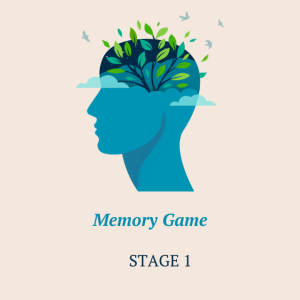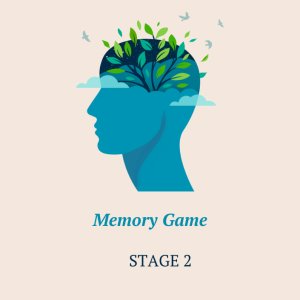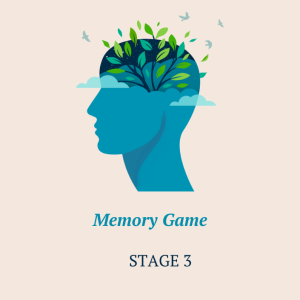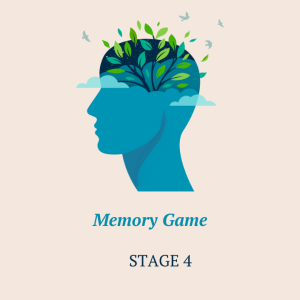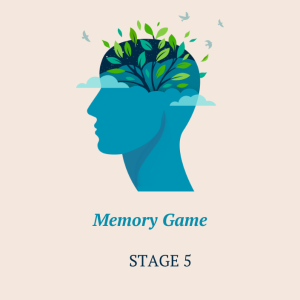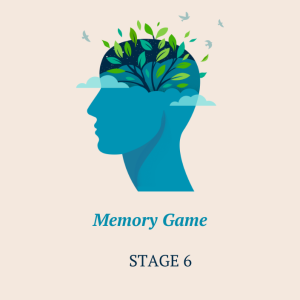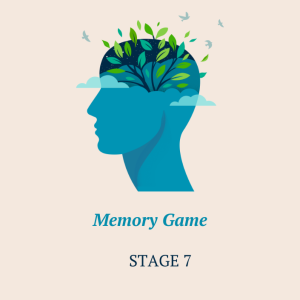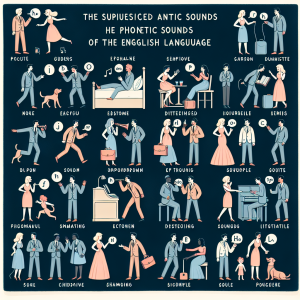Sound Flash Cards
Utilizing a phonics approach to learning English benefits learners of all ages, including adults, by providing a systematic method for decoding and understanding the language. Phonics instruction teaches the relationship between sounds and letters, enabling learners to recognize and pronounce words accurately. This approach offers a solid foundation for literacy skills, aiding in reading, spelling, and pronunciation. For adults, particularly those learning English as a second language, phonics provides a structured framework for mastering unfamiliar words and improving overall language proficiency. Additionally, phonics instruction promotes self-confidence and independence in language learning, empowering adults to navigate real-life situations with greater ease. By focusing on phonics, adult learners can develop essential literacy skills essential for success in both personal and professional contexts.
Utilizing a phonics approach to learning English benefits learners of all ages, including adults, by providing a systematic method for decoding and understanding the language. Phonics instruction teaches the relationship between sounds and letters, enabling learners to recognize and pronounce words accurately. This approach offers a solid foundation for literacy skills, aiding in reading, spelling, and pronunciation. For adults, particularly those learning English as a second language, phonics provides a structured framework for mastering unfamiliar words and improving overall language proficiency. Additionally, phonics instruction promotes self-confidence and independence in language learning, empowering adults to navigate real-life situations with greater ease. By focusing on phonics, adult learners can develop essential literacy skills essential for success in both personal and professional contexts.
Utilizing a phonics approach to learning English benefits learners of all ages, including adults, by providing a systematic method for decoding and understanding the language. Phonics instruction teaches the relationship between sounds and letters, enabling learners to recognize and pronounce words accurately. This approach offers a solid foundation for literacy skills, aiding in reading, spelling, and pronunciation. For adults, particularly those learning English as a second language, phonics provides a structured framework for mastering unfamiliar words and improving overall language proficiency. Additionally, phonics instruction promotes self-confidence and independence in language learning, empowering adults to navigate real-life situations with greater ease. By focusing on phonics, adult learners can develop essential literacy skills essential for success in both personal and professional contexts.
Utilizing a phonics approach to learning English benefits learners of all ages, including adults, by providing a systematic method for decoding and understanding the language. Phonics instruction teaches the relationship between sounds and letters, enabling learners to recognize and pronounce words accurately. This approach offers a solid foundation for literacy skills, aiding in reading, spelling, and pronunciation. For adults, particularly those learning English as a second language, phonics provides a structured framework for mastering unfamiliar words and improving overall language proficiency. Additionally, phonics instruction promotes self-confidence and independence in language learning, empowering adults to navigate real-life situations with greater ease. By focusing on phonics, adult learners can develop essential literacy skills essential for success in both personal and professional contexts.
Utilizing a phonics approach to learning English benefits learners of all ages, including adults, by providing a systematic method for decoding and understanding the language. Phonics instruction teaches the relationship between sounds and letters, enabling learners to recognize and pronounce words accurately. This approach offers a solid foundation for literacy skills, aiding in reading, spelling, and pronunciation. For adults, particularly those learning English as a second language, phonics provides a structured framework for mastering unfamiliar words and improving overall language proficiency. Additionally, phonics instruction promotes self-confidence and independence in language learning, empowering adults to navigate real-life situations with greater ease. By focusing on phonics, adult learners can develop essential literacy skills essential for success in both personal and professional contexts.
Utilizing a phonics approach to learning English benefits learners of all ages, including adults, by providing a systematic method for decoding and understanding the language. Phonics instruction teaches the relationship between sounds and letters, enabling learners to recognize and pronounce words accurately. This approach offers a solid foundation for literacy skills, aiding in reading, spelling, and pronunciation. For adults, particularly those learning English as a second language, phonics provides a structured framework for mastering unfamiliar words and improving overall language proficiency. Additionally, phonics instruction promotes self-confidence and independence in language learning, empowering adults to navigate real-life situations with greater ease. By focusing on phonics, adult learners can develop essential literacy skills essential for success in both personal and professional contexts.
Utilizing a phonics approach to learning English benefits learners of all ages, including adults, by providing a systematic method for decoding and understanding the language. Phonics instruction teaches the relationship between sounds and letters, enabling learners to recognize and pronounce words accurately. This approach offers a solid foundation for literacy skills, aiding in reading, spelling, and pronunciation. For adults, particularly those learning English as a second language, phonics provides a structured framework for mastering unfamiliar words and improving overall language proficiency. Additionally, phonics instruction promotes self-confidence and independence in language learning, empowering adults to navigate real-life situations with greater ease. By focusing on phonics, adult learners can develop essential literacy skills essential for success in both personal and professional contexts.
Consonant Blends
Consonant blends play a crucial role in English language acquisition as they enhance phonemic awareness and improve pronunciation accuracy. By combining two or more consonant sounds within a word, blends facilitate smoother transitions between letters and aid in word recognition. Mastering consonant blends enables learners to decipher and pronounce unfamiliar words more confidently, enhancing reading fluency and comprehension. Additionally, understanding blends contributes to spelling proficiency, as learners can accurately represent the sounds they hear in written form. Moreover, consonant blends are pervasive in English vocabulary, appearing in countless words across various contexts. Thus, proficiency in consonant blends equips learners with essential linguistic skills necessary for effective communication and literacy, making them a fundamental component of English language learning.
Consonant blends play a crucial role in English language acquisition as they enhance phonemic awareness and improve pronunciation accuracy. By combining two or more consonant sounds within a word, blends facilitate smoother transitions between letters and aid in word recognition. Mastering consonant blends enables learners to decipher and pronounce unfamiliar words more confidently, enhancing reading fluency and comprehension. Additionally, understanding blends contributes to spelling proficiency, as learners can accurately represent the sounds they hear in written form. Moreover, consonant blends are pervasive in English vocabulary, appearing in countless words across various contexts. Thus, proficiency in consonant blends equips learners with essential linguistic skills necessary for effective communication and literacy, making them a fundamental component of English language learning.
Memory Game
Playing games to reinforce phonic sounds is essential as it transforms learning into an engaging and interactive experience. Games provide a fun and enjoyable way for learners to practice phonics, making the learning process more enjoyable and memorable. Through games, learners actively engage with phonetic concepts, reinforcing their understanding of sound-letter relationships and improving their pronunciation skills. The competitive or cooperative nature of games fosters motivation and encourages participation, leading to increased retention of phonic knowledge. Moreover, games offer opportunities for repetition and practice, allowing learners to reinforce phonetic skills in a low-pressure environment. Overall, incorporating games into phonics instruction enhances learning outcomes by making phonics more accessible, engaging, and effective for learners of all ages.
Playing games to reinforce phonic sounds is essential as it transforms learning into an engaging and interactive experience. Games provide a fun and enjoyable way for learners to practice phonics, making the learning process more enjoyable and memorable. Through games, learners actively engage with phonetic concepts, reinforcing their understanding of sound-letter relationships and improving their pronunciation skills. The competitive or cooperative nature of games fosters motivation and encourages participation, leading to increased retention of phonic knowledge. Moreover, games offer opportunities for repetition and practice, allowing learners to reinforce phonetic skills in a low-pressure environment. Overall, incorporating games into phonics instruction enhances learning outcomes by making phonics more accessible, engaging, and effective for learners of all ages.
Playing games to reinforce phonic sounds is essential as it transforms learning into an engaging and interactive experience. Games provide a fun and enjoyable way for learners to practice phonics, making the learning process more enjoyable and memorable. Through games, learners actively engage with phonetic concepts, reinforcing their understanding of sound-letter relationships and improving their pronunciation skills. The competitive or cooperative nature of games fosters motivation and encourages participation, leading to increased retention of phonic knowledge. Moreover, games offer opportunities for repetition and practice, allowing learners to reinforce phonetic skills in a low-pressure environment. Overall, incorporating games into phonics instruction enhances learning outcomes by making phonics more accessible, engaging, and effective for learners of all ages.
Playing games to reinforce phonic sounds is essential as it transforms learning into an engaging and interactive experience. Games provide a fun and enjoyable way for learners to practice phonics, making the learning process more enjoyable and memorable. Through games, learners actively engage with phonetic concepts, reinforcing their understanding of sound-letter relationships and improving their pronunciation skills. The competitive or cooperative nature of games fosters motivation and encourages participation, leading to increased retention of phonic knowledge. Moreover, games offer opportunities for repetition and practice, allowing learners to reinforce phonetic skills in a low-pressure environment. Overall, incorporating games into phonics instruction enhances learning outcomes by making phonics more accessible, engaging, and effective for learners of all ages.
Playing games to reinforce phonic sounds is essential as it transforms learning into an engaging and interactive experience. Games provide a fun and enjoyable way for learners to practice phonics, making the learning process more enjoyable and memorable. Through games, learners actively engage with phonetic concepts, reinforcing their understanding of sound-letter relationships and improving their pronunciation skills. The competitive or cooperative nature of games fosters motivation and encourages participation, leading to increased retention of phonic knowledge. Moreover, games offer opportunities for repetition and practice, allowing learners to reinforce phonetic skills in a low-pressure environment. Overall, incorporating games into phonics instruction enhances learning outcomes by making phonics more accessible, engaging, and effective for learners of all ages.
Playing games to reinforce phonic sounds is essential as it transforms learning into an engaging and interactive experience. Games provide a fun and enjoyable way for learners to practice phonics, making the learning process more enjoyable and memorable. Through games, learners actively engage with phonetic concepts, reinforcing their understanding of sound-letter relationships and improving their pronunciation skills. The competitive or cooperative nature of games fosters motivation and encourages participation, leading to increased retention of phonic knowledge. Moreover, games offer opportunities for repetition and practice, allowing learners to reinforce phonetic skills in a low-pressure environment. Overall, incorporating games into phonics instruction enhances learning outcomes by making phonics more accessible, engaging, and effective for learners of all ages.
Playing games to reinforce phonic sounds is essential as it transforms learning into an engaging and interactive experience. Games provide a fun and enjoyable way for learners to practice phonics, making the learning process more enjoyable and memorable. Through games, learners actively engage with phonetic concepts, reinforcing their understanding of sound-letter relationships and improving their pronunciation skills. The competitive or cooperative nature of games fosters motivation and encourages participation, leading to increased retention of phonic knowledge. Moreover, games offer opportunities for repetition and practice, allowing learners to reinforce phonetic skills in a low-pressure environment. Overall, incorporating games into phonics instruction enhances learning outcomes by making phonics more accessible, engaging, and effective for learners of all ages.
Alternative Phonic Sounds
Using actions to remember sounds in the teaching of phonics is crucial for young learners. Actions make phonics lessons more engaging and fun, which helps children stay interested and motivated. When children use actions, they involve multiple senses – seeing, hearing, and moving – which helps reinforce their learning. This multisensory approach aids memory retention because it creates stronger connections in the brain.
For example, associating the sound “s” with a snake-like hand movement helps children link the sound to the action. This physical engagement makes it easier for them to recall the sound later. Actions also aid in distinguishing between similar sounds, reducing confusion.
Additionally, actions can help children who have different learning styles. Some kids learn better through movement and play, so incorporating actions caters to their needs. Overall, using actions in phonics teaching supports a more interactive and effective learning experience, helping children become confident readers.
Practicing using the correct phonic sounds to spell words is essential for developing strong reading and writing skills. When children understand the relationship between letters and sounds, they can decode words more accurately. This understanding helps them spell words correctly, as each sound in a word corresponds to a specific letter or group of letters.
Consistent practice with phonics enables children to build a solid foundation in literacy. It boosts their confidence as they become more proficient in recognizing patterns and applying spelling rules. This skill is critical for their overall academic success since reading and writing are fundamental to all subjects.
Moreover, correct phonics practice reduces guesswork and reliance on memorization. Children learn to spell unfamiliar words by breaking them down into their constituent sounds, which enhances their problem-solving skills. In summary, practicing phonics fosters accurate spelling, boosts confidence, and lays the groundwork for lifelong literacy.
Practicing using the correct phonic sounds to spell words is essential for developing strong reading and writing skills. When children understand the relationship between letters and sounds, they can decode words more accurately. This understanding helps them spell words correctly, as each sound in a word corresponds to a specific letter or group of letters.
Consistent practice with phonics enables children to build a solid foundation in literacy. It boosts their confidence as they become more proficient in recognizing patterns and applying spelling rules. This skill is critical for their overall academic success since reading and writing are fundamental to all subjects.
Moreover, correct phonics practice reduces guesswork and reliance on memorization. Children learn to spell unfamiliar words by breaking them down into their constituent sounds, which enhances their problem-solving skills. In summary, practicing phonics fosters accurate spelling, boosts confidence, and lays the groundwork for lifelong literacy.
Practicing using the correct phonic sounds to spell words is essential for developing strong reading and writing skills. When children understand the relationship between letters and sounds, they can decode words more accurately. This understanding helps them spell words correctly, as each sound in a word corresponds to a specific letter or group of letters.
Consistent practice with phonics enables children to build a solid foundation in literacy. It boosts their confidence as they become more proficient in recognizing patterns and applying spelling rules. This skill is critical for their overall academic success since reading and writing are fundamental to all subjects.
Moreover, correct phonics practice reduces guesswork and reliance on memorization. Children learn to spell unfamiliar words by breaking them down into their constituent sounds, which enhances their problem-solving skills. In summary, practicing phonics fosters accurate spelling, boosts confidence, and lays the groundwork for lifelong literacy.
Practicing using the correct phonic sounds to spell words is essential for developing strong reading and writing skills. When children understand the relationship between letters and sounds, they can decode words more accurately. This understanding helps them spell words correctly, as each sound in a word corresponds to a specific letter or group of letters.
Consistent practice with phonics enables children to build a solid foundation in literacy. It boosts their confidence as they become more proficient in recognizing patterns and applying spelling rules. This skill is critical for their overall academic success since reading and writing are fundamental to all subjects.
Moreover, correct phonics practice reduces guesswork and reliance on memorization. Children learn to spell unfamiliar words by breaking them down into their constituent sounds, which enhances their problem-solving skills. In summary, practicing phonics fosters accurate spelling, boosts confidence, and lays the groundwork for lifelong literacy.
Practicing using the correct phonic sounds to spell words is essential for developing strong reading and writing skills. When children understand the relationship between letters and sounds, they can decode words more accurately. This understanding helps them spell words correctly, as each sound in a word corresponds to a specific letter or group of letters.
Consistent practice with phonics enables children to build a solid foundation in literacy. It boosts their confidence as they become more proficient in recognizing patterns and applying spelling rules. This skill is critical for their overall academic success since reading and writing are fundamental to all subjects.
Moreover, correct phonics practice reduces guesswork and reliance on memorization. Children learn to spell unfamiliar words by breaking them down into their constituent sounds, which enhances their problem-solving skills. In summary, practicing phonics fosters accurate spelling, boosts confidence, and lays the groundwork for lifelong literacy.
Practicing using the correct phonic sounds to spell words is essential for developing strong reading and writing skills. When children understand the relationship between letters and sounds, they can decode words more accurately. This understanding helps them spell words correctly, as each sound in a word corresponds to a specific letter or group of letters.
Consistent practice with phonics enables children to build a solid foundation in literacy. It boosts their confidence as they become more proficient in recognizing patterns and applying spelling rules. This skill is critical for their overall academic success since reading and writing are fundamental to all subjects.
Moreover, correct phonics practice reduces guesswork and reliance on memorization. Children learn to spell unfamiliar words by breaking them down into their constituent sounds, which enhances their problem-solving skills. In summary, practicing phonics fosters accurate spelling, boosts confidence, and lays the groundwork for lifelong literacy.
Parts of Speech
Parts of speech are fundamental to understanding and using the English language effectively. They categorize words based on their function within a sentence, which helps in structuring coherent and grammatically correct sentences. There are eight primary parts of speech: nouns, pronouns, verbs, adjectives, adverbs, prepositions, conjunctions, and interjections. Each plays a unique role, such as nouns identifying people, places, or things, and verbs indicating actions or states. Adjectives and adverbs provide descriptive detail, while conjunctions and prepositions show relationships between words and ideas. Recognizing parts of speech aids in parsing sentences, enhancing reading comprehension, and improving writing clarity. It also facilitates language learning and translation by providing a framework for understanding sentence construction across different languages. Overall, mastery of parts of speech is crucial for effective communication, enabling speakers and writers to convey their ideas accurately and creatively.
Parts of speech are fundamental to understanding and using the English language effectively. They categorize words based on their function within a sentence, which helps in structuring coherent and grammatically correct sentences. There are eight primary parts of speech: nouns, pronouns, verbs, adjectives, adverbs, prepositions, conjunctions, and interjections. Each plays a unique role, such as nouns identifying people, places, or things, and verbs indicating actions or states. Adjectives and adverbs provide descriptive detail, while conjunctions and prepositions show relationships between words and ideas. Recognizing parts of speech aids in parsing sentences, enhancing reading comprehension, and improving writing clarity. It also facilitates language learning and translation by providing a framework for understanding sentence construction across different languages. Overall, mastery of parts of speech is crucial for effective communication, enabling speakers and writers to convey their ideas accurately and creatively.









